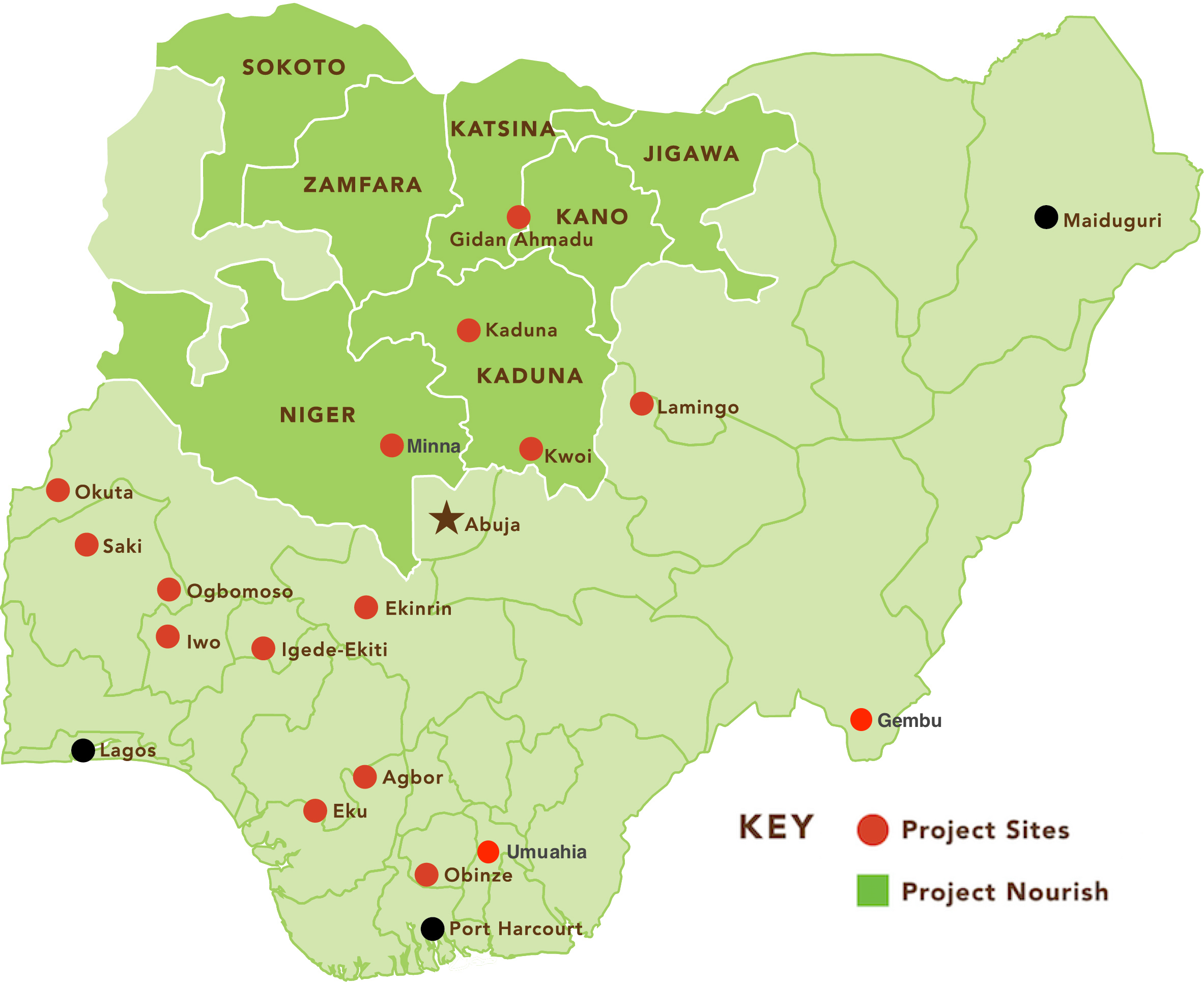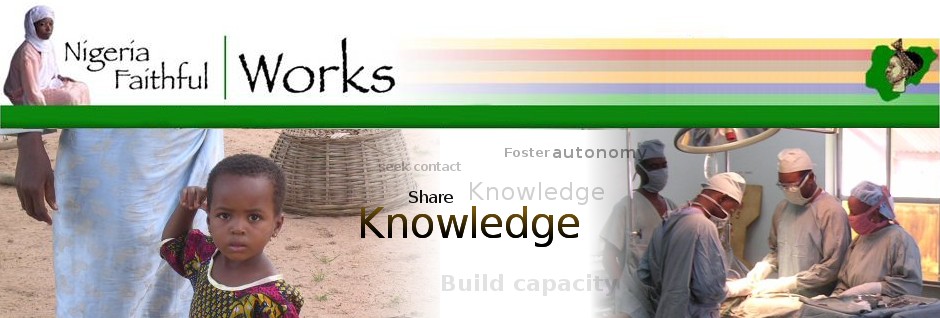 Facts About Nigeria
Facts About Nigeria
Population and Land Size
Nigeria, with an estimated 211 million people, is the most populous country in Africa and ranks seventh in the world. Its population has increased 50% in the past 50 years, and now one out of six Africans is Nigerian. The United Nations projects that by the year 2035, Nigeria will be the third most populous country in the world.
Nigeria contains about 352,000 square miles. If you took all the people who live east of the Mississippi River in United States and put them into Texas and Oklahoma, that would approximately match the land size and population of Nigeria.
Climate and Vegetation
Being near the equator, Nigeria’s climate is tropical and hot. The rainy season is from April through September, and the dry season from October through March. Nigeria’s vegetation near the ocean consists of rainforest, which, going north, gives way to savannah, and eventually to the Sahara Desert.
Economy and Exports
Nigeria has surpassed South Africa as the continent’s largest economy, yet according to a recent Gallup Poll, only 9% of working-age people are employed. Nigeria’s economy is primarily subsistence agriculture. It ranks first in Africa in farm output and 25th worldwide. Manufacturing is growing and ranks third in Africa. The chief export is oil; hides, natural gas, timber and tin make up the other main exports.
People, Languages and Religions
There are over 200 ethnic groups and 500 indigenous languages. English is the primary language of education and business. The major ethnic groups are Hausa, Yoruba and Igbo. The major religions are Islam (50%) and Christianity (40%).
Literacy and Communication
The adult literacy rate is 61%. Mobile telephones are used by 55% of Nigerians; 28% of Nigerians are internet users.
Challenges Related to Poverty, Health and Sanitation
“If wealth was the inevitable result of hard work and enterprise, every woman in Africa would be a millionaire.” —George Monbiot
According to UNICEF, over 60% of Nigeria’s population lives under the international poverty line of $1.25 a day. About 70% live on less than $1 a day, and 90% of Nigerians live on less than $2 a day.
Almost half of all global deaths of children under age five occur in sub-Saharan Africa, where one of every six children dies before age five. An African child dies of malaria every 30 seconds.
Each year over 200,000 African children are born with sickle-cell anemia. Three-fourths of them are in Nigeria.
The most frequent cause of death for Nigerian women is complications from childbirth. The number one cause of death for men is traffic accidents. Over three million Nigerians are living with HIV, and there are about 12 million orphans due to the combined effects of HIV/AIDS and poverty.
UNICEF has found that:
- Life expectancy in Nigeria is 48 years.
- 1% of the national government’s budget is devoted to health initiatives.
- 30% of the country uses improved sanitation facilities.
- 58% of the country uses improved drinking water sources.
